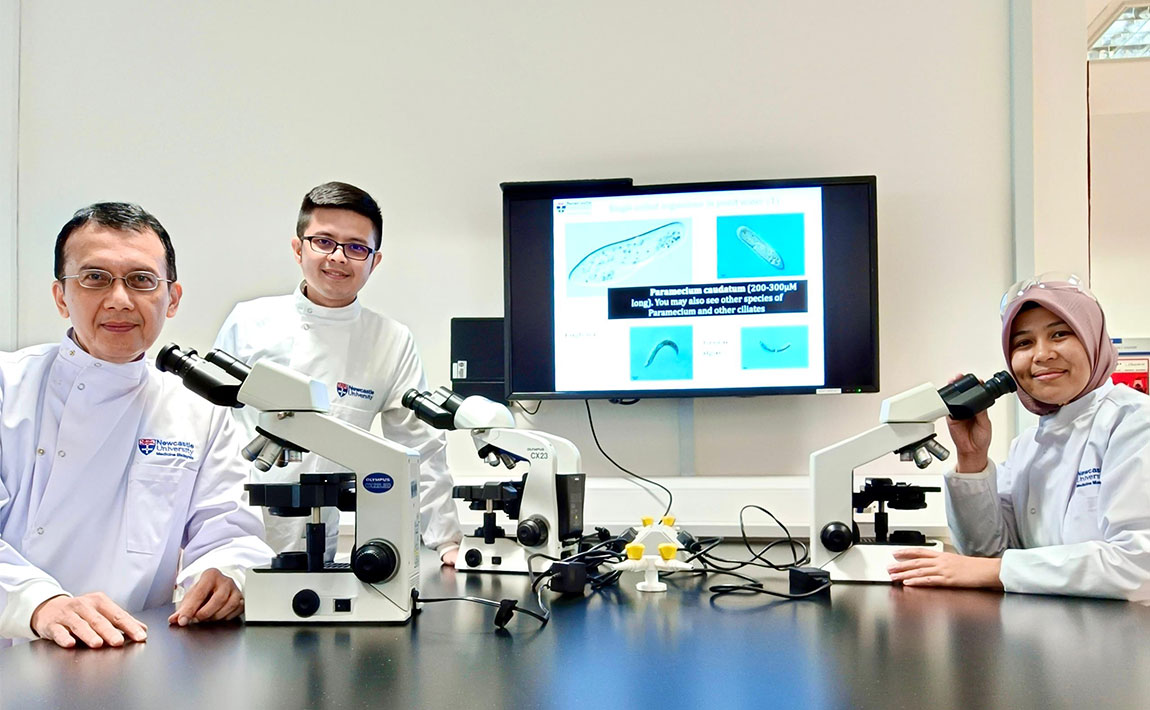Grant
Associate Professor Dr Moe Kyaw Thu, a Biomedical Science staff member at Newcastle University Medicine Malaysia (NUMed) did the university proud when his team’s community outreach project on “Promoting Microbial Awareness Among School Children: Microbiology Education Programme” won a grant from the Malaysian Society of Microbiology (MSM) amounting to RM5,000. This marked the first time that the university’s biomedical science team received an external grant.
“I am honoured and grateful to receive this award, and would like to extend my heartfelt appreciation to the wonderful team working on this project for their exceptional efforts.
“I hope that this achievement will set a motivating example for fellow educators, whilst simultaneously showcasing the quality of our faculty and the contributions that it has made in the field of microbiology,” said Dr Moe.

The project, which is a collaborative effort with NUMed’s Dean of Biomedical Sciences and Associate Professor Dr Madihah Rushaidi and lecturer Dr James Woon, is aimed at igniting children’s curiosity and interest in microbiology through interactive workshops and experiments, empowering healthy habits by educating them about beneficial microbes and the importance of hygiene practices, and encouraging a passion for science and lifelong love of learning.
The initiative kicks off with a needs assessment, which will see the project team reaching out to two primary schools in Johor to identify gaps in microbiology education among nine to 12-year-olds and areas for curriculum improvement. This will lead to the designing of engaging workshops to introduce the children to microbial basics, including important definitions, their habitats and environmental roles.
Prior to the workshops, a pre-survey will be conducted to evaluate children's existing microbiology understanding and enable tailored content delivery. This allows for the learning experience to be effectively enhanced with interactive activities, hands-on experiments, informative sessions, and educational games like Microbe Bingo and Microbe Charades during the workshops.
Upon being mentored and equipped with effective teaching strategies, NUMed’s enthusiastic Year 2 medical and biomedical science students will serve as educators and role models to inspire scientific interest among the children. Post-workshop assessments will later be conducted to measure their impact on the children's understanding.
“Collaboration and sustainability are vital. By integrating microbiology education into school curricula, we hope to encourage ongoing discussions about microbes' importance.
“Partnering with teachers, parents, and communities ensures a lasting educational impact, promoting a lifelong passion for science,” shared Dr Madihah.
The project is hoped to significantly enrich participants' understanding of microbiology, as well as instilling vital hygiene practices with emphasis on proper handwashing and germ prevention. It aspires to kindle scientific curiosity among the participants, potentially providing a pathway for future pursuits in science. Armed with knowledge about beneficial and harmful microbes, children will be empowered to make informed health decisions. Ultimately, by integrating microbiology into education and engaging communities, the project ensures a sustainable impact, promoting lasting benefits for both students and their communities.
